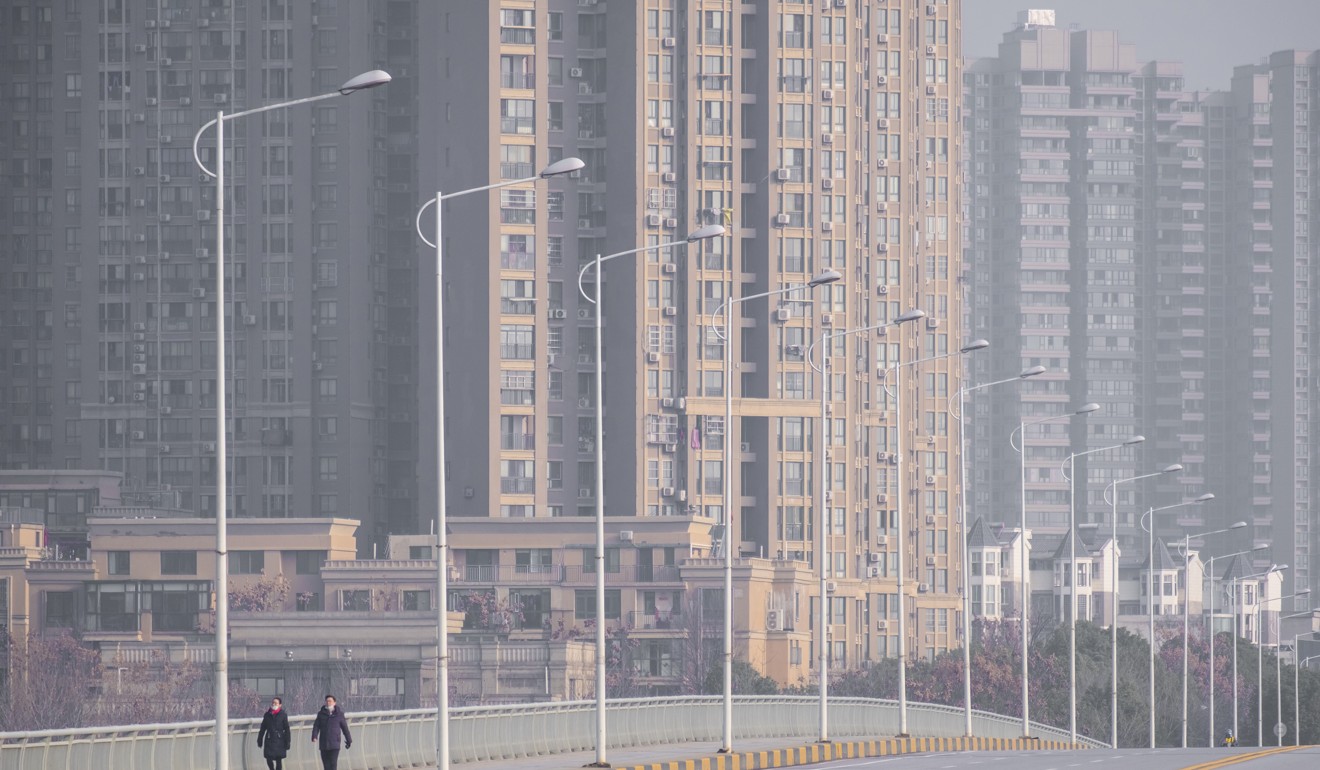
Exclusive | The Hong Kong hospital founder who raced to Wuhan coronavirus epicentre knowing full well of impending lockdown
- Businessman Tse Chun-ming is now among 2,000 Hongkongers stranded in Hubei province, but says he is there for staff morale and to oversee resources
- Two Hongkongers are among Covid-19 patients warded at his hospital despite lack of space, after city’s trade office contacted Tse
As Wuhan residents were fleeing the city in droves ahead of a lockdown in January, one Hongkonger made a beeline to ground zero of the coronavirus outbreak – to visit a hospital.
Businessman Tse Chun-ming braved the risks on January 23 to enter Wuhan, knowing full well the city where the Covid-19 virus was thought to have originated would be shut down amid the growing health crisis.
Tse, in his 60s and chairman of the Wuhan Asia Industrial Company, founded the Wuhan Asia Heart Hospital in 1999 and Wuhan Asia General Hospital in 2018. He was with his family in Hong Kong but decided to head to Wuhan two days before Lunar New Year, when he learned of the lockdown.
Tse is also president of the Hong Kong Chamber of Commerce in China-Wuhan, and a standing committee member of the Hubei provincial committee of the Chinese People’s Political Consultative Conference.

“As I am in charge of the hospital, staff morale would be badly hit if I wasn’t there,” Tse said in a phone interview with the Post. “My presence can also ensure resources would be better allocated.”
Since then, Wuhan Asia General Hospital has stopped its outpatient services, receiving only Covid-19 patients referred by the government.
“The supply of protection gear and masks has been very tight. That’s why some of our medical staff with inadequate protection have been infected by the virus,” Tse said, adding more than 30 of his employees came down with Covid-19 and were receiving treatment at the hospital.
As I am in charge of the hospital, staff morale would be badly hit if I wasn’t there
He added that about 420 patients with the disease were now at his hospital, including two Hongkongers, a father and son.
Tse said the father, Li Kwok-chiu, was previously isolated at home because hospitals in his district had run out of beds. With the man’s condition deteriorating, son Li Ka-ho, 36, sought help last Friday from the Hong Kong government’s Wuhan trade office, which then contacted Tse.
“The hospital head told me that all our beds were occupied at the time. But as it is a Hongkonger, I really wanted to help so I asked him to add an extra bed,” Tse said. He later received another call from the office on Tuesday, which referred the infected son.

Tse said the pair are now in stable condition, adding that University of Hong Kong microbiologist Yuen Kwok-yung, who has spoken publicly on the disease, had reached out to him and offered medical advice on Wednesday evening, after news emerged of 10 Hongkongers infected in the province.
Tse said about 20 Covid-19 patients had recovered and were discharged from his hospital, with no deaths so far.
“I believe the epidemic in Wuhan is approaching the end stage, and it is expected to taper off by the end of March,” he said. “Hongkongers need not panic. The virus is highly infectious, but it can be controlled once cases are detected and treated at an early stage.”

For other Hongkongers stranded in the city, Tse said it would be good if the Hong Kong government could send a chartered flight to bring them home for quarantine.
He added that those who were already infected should however remain on the mainland and receive treatment, as there is a risk of infection on the flight.
Tse’s ties with Wuhan began after he visited the city where one of his business clients was based. He had launched a trading business after finishing his studies in Hong Kong in the 1980s, exporting construction materials from Japan and South Korea to mainland cities through Hong Kong.
He then started business dealings in Wuhan, convinced by the potential of its central location in the country.
In 1993, he launched the Wuhan Asia Hotel, and ventured into the medical sector later.

Hong Kong’s embattled government meanwhile is under mounting pressure to roll out tougher measures to evacuate locals still in Hubei, with lawmakers sharing Tse’s sentiments for a chartered flight.
The government said it was assessing risks and studying possible ways to bring back some 2,000 Hongkongers, as sufficient quarantine facilities were needed.

